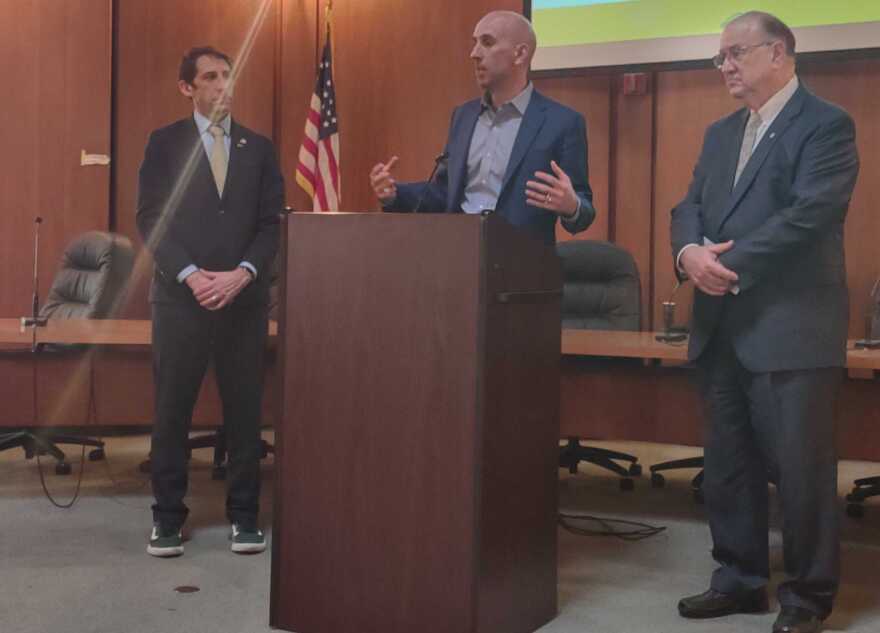EASTON, Pa. — The home of the first disposable paper drinking cup, the Dixie Cup, the movement toward a “throwaway society” started in Easton, city Mayor Sal Panto Jr. said.
- Mayors in Allentown, Bethlehem and Easton have started a 3 City Coalition to confront regional issues, including sustainability
- While Easton and Bethlehem both have climate action plans, Allentown has a climate action report
- Climate change across Pennsylvania is expected contribute to an increase in average temperatures and flooding events, as well as more intense storms
“From paper cups, we went to plastic,” Panto said. “It’s just easier when you’re done with a picnic, you just throw it away. Our parents didn’t do that. Our parents had plates and they washed them at the end of a picnic; they didn’t throw them away.
“We are a throwaway society — we use everything once and throw it away. And that has to stop. I mean, it really does have to stop.”
We are a throwaway society — we use everything once and throw it away. And that has to stop. I mean, it really does have to stop.Easton Mayor Sal Panto Jr
From a proliferation of litter, an endangered river and more severe weather, exacerbated by climate change, the Lehigh Valley’s leaders have plenty of environmental issues to contend with. Over the past half-decade, officials and environmentalists in Allentown, Bethlehem and Easton have worked on climate action plans and reports with goals to greatly reduce greenhouse gas emissions, echoing state and regional efforts. Most recently, a new coalition between the three cities’ leaders is trying a different approach, aiming to improve the region’s sustainability by working together.
Earlier this year, Panto, along with Allentown Mayor Matt Tuerk and Bethlehem Mayor J. William Reynolds, announced the formation of the 3 City Coalition, a formal partnership aiming to produce solutions to some of the region's most pressing issues — and sustainability is one of the areas they hope to improve.
“The idea is that we don't want it to be about the merits,” Reynolds said. “We want it to be about Allentown, Bethlehem, Easton — permanently. So the way that that works is that we are coming together, we're meeting regularly [for] three functions: advocate for issues that have to do with the three cities, educate people on how things that occur in other cities and outside of our cities have an effect on things like our housing market, and then partner.”
It isn’t an entirely new concept, especially in the Lehigh Valley. Almost two decades ago, the majors of the three cities signed the “Three City Proclamation,” which endorsed the U.S. Conference of Mayors’ Climate Protection Agreement, setting goals to reduce carbon emissions in their cities below 1990 levels. Since then, both Easton and Bethlehem have published in-depth climate action plans, while Allentown’s Environmental Advisory Council has posted a climate action report with recommendations to create a city-wide plan.
“It was, I think, an important step in Lehigh Valley kind of collaboration,” Reynolds said. “So I think it is an outgrowth of that, and it's how do we create that more formal partnership? And how do we advocate for each other on issues that we have shared interest in throughout the Lehigh Valley?”
The mayors said working together to address sustainability issues across the region will hopefully stem the impacts of climate change already present in the Lehigh Valley: more intense flooding, storms, rising temperatures and heatwaves.
Regional, state plans
Pennsylvania’s average statewide temperature is expected to increase by almost 6 degrees by mid-century, according to the state Department of Environmental Protection’s 2021 climate impacts assessment. There will be more frequent and intense extreme heat events, as well as more total average rainfall, due to less frequent but heavier rain events.
The state’s climate action plan, published after the assessment, set lofty goals, reducing greenhouse gasses by 26% by 2025 and 80% by 2050, both from 2005 levels.
Dave Althoff, director of the state DEP’s Energy Programs Office, which heads up the state climate action plan, said the data available looks promising so far.
“The last greenhouse gas inventory data that we did is actually 2019 data,” he said. “It takes almost three years, two years for EPA to get the data together and then a year for us to evaluate the data – We have to get some other parts and pieces to put that together. So we're currently working on the 2020 data.
“…Ultimately, we're on our way there from the 2005 baseline, the 2019 said that we were at an 18% reduction.”
But it’s getting harder, he added.
“We need to do more. It's just not happening naturally,” Althoff said. “So the deployment of renewable energy, energy efficiency, electric vehicles in the transportation sector, working on decarbonizing the industrial sector, those are all things that we still need to lean into, which is what our climate action plan really tells us.”
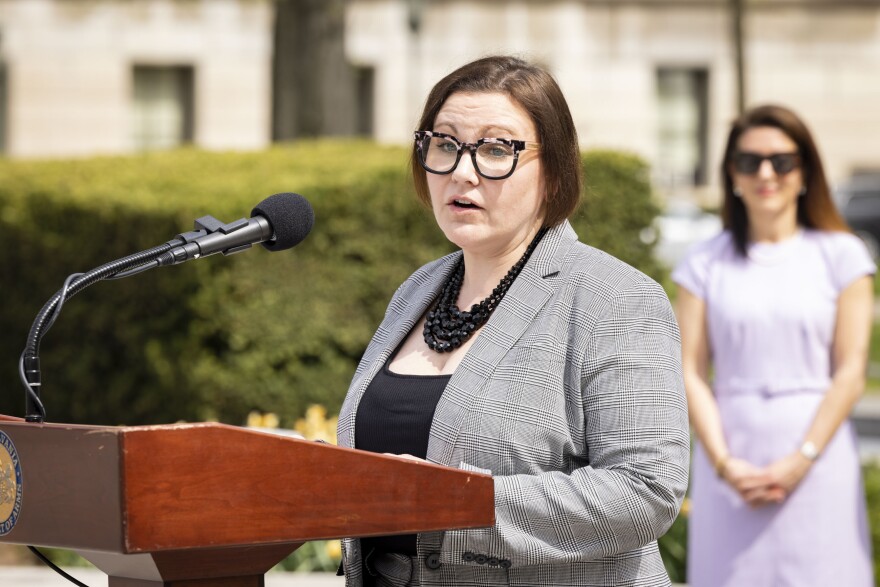
Earlier this month, the Lehigh Valley Planning Commission received an infusion of federal funds to help fight climate change across the region. By opting into the Climate Pollution Reduction Grant program, part of the federal Inflation Reduction Act, the LVPC will receive $1 million.
“We have a monumental opportunity to protect and improve our land, water and air,” said LVPC Executive Director Becky Bradley in a news release announcing the funding. We must ensure that quality and availability of these resources is available now and into the future.
“Addressing our climate crisis is going to require the kind of planning and response that can only be accomplished through a multi-governmental partnership. It’s a practical, innovative path to the best possible outcomes.”
The money comes a little over a month after the LVPC published their greenhouse gas assessment. The study showed the Valley’s 2019 emissions made up just shy of 4% of the commonwealth’s total gross greenhouse gas emission.
About 35% of the Valley’s total emissions were attributed to industrial electricity and natural gas, while about 27% were from transportation and mobile sources, according to the study.
The LVPC has published a regional climate action assessment, which outlines local plans and their potential impacts on climate change.
“Under each of the plan’s broadly defined goals, 86% of FutureLV: The Regional Plan, 74% of Lehigh County’s Livable Landscapes Plan, 83% of Northampton County’s Livable Landscapes Plan and 100% of Walk/RollLV is associated with an [American Planning Association] Climate Change Policy,” according to the planning commission’s website. “In total, 525 goals, policies, actions and strategies from the four different plans relate to climate action.”
Climate action in Allentown, Bethlehem and Easton
Bethlehem
Bethlehem’s climate action plan was published in April 2021. Among other goals, it lays out a roadmap to achieve a 30% reduction in greenhouse gas emissions from municipal buildings and transportation by 2030. Officials also set a 33% reduction of community-wide emissions by 2025.
City officials are currently updating annual greenhouse gas inventories, a process that will take several months as it requires substantial data gathering, according to Katharine Gross of WSP, a professional services firm that consults with the city on their plan.
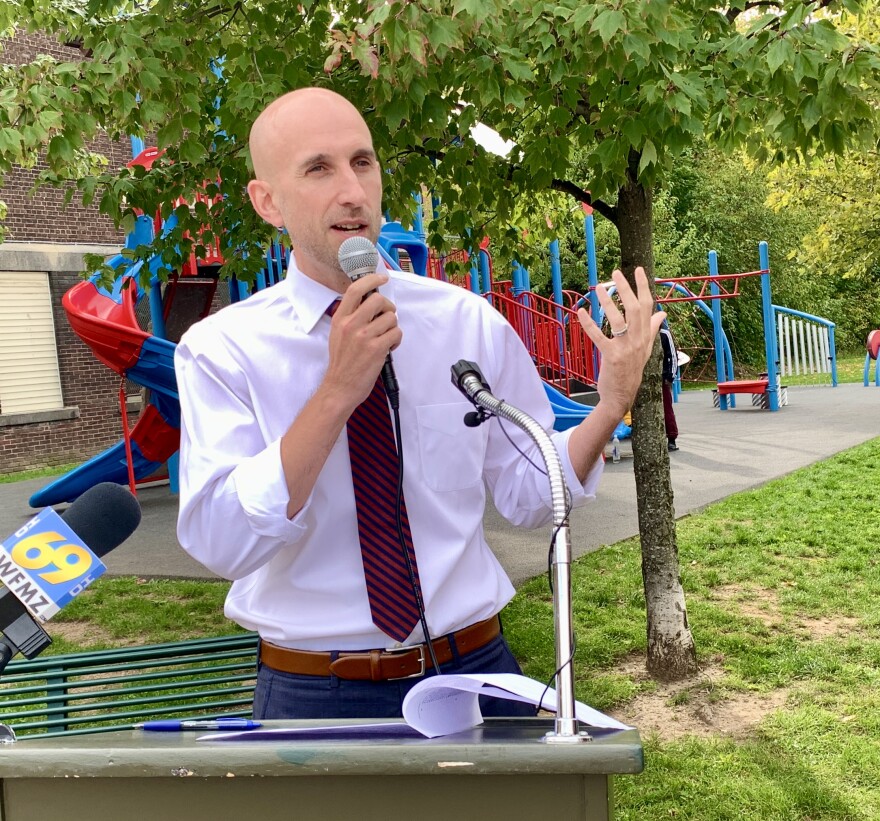
However, there are efforts moving forward. The city has developed the Bethlehem Climate Challenge, a voluntary leadership initiative between the mayor’s office and the city’s private, public, non-for-profit organizations, institutions and businesses as well as students and residents to commit to reduce greenhouse gas emissions.
“The Climate Challenge will include educational information on saving energy, purchasing renewable energy, choosing low-impact transit options, reducing waste and other individual actions Bethlehem residents and businesses can take,” Gross said.
Officials expect to launch the effort this fall.
Other initiatives include the city’s continued purchase of 100% renewable electricity for municipal operations; a waste reduction, reuse and recycling checklist for large events and festivals on public property; as well as the creation of a Climate and Environmental Justice Resident Council. Through that group, residents of the Southside can meet their neighbors and learn about ways to get involved in their community.
Easton
Easton’s climate action plan has similar objectives. Published in October 2021, goals include a 30% reduction in greenhouse gas emissions by 2030, increasing to 80% by 2050.
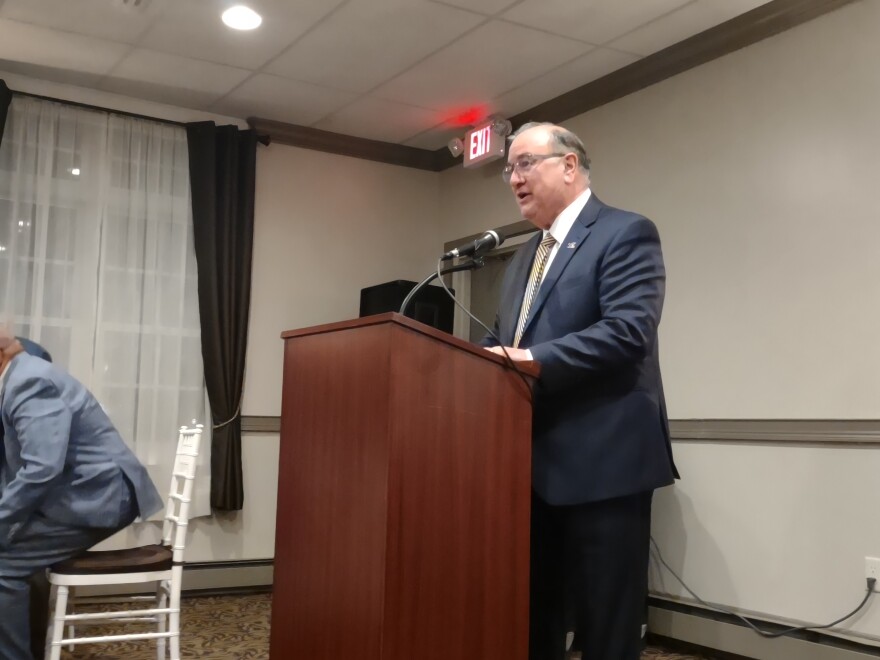
“Every director knows that the climate action report is important, and they do things within their own departments to comply with that climate action plan,” Panto said. “We're gonna shoot for 2030, probably more like 2035, but we're gonna shoot for 2030.”
The biggest obstacle, Panto said, is “the residential acceptance that climate is changing.”
“That is still the overall perception – that it’s not changing,” he said. “There's 62 municipalities in the Lehigh Valley, and we're all one community. We all breathe the same air, we drink the same water sources.
“We need to work on that as a region, not just individually.”
Allentown
Allentown does not have a published climate action plan. However, the city’s Environmental Advisory Council in July 2021 submitted to council a climate action report. Included are a 2018 greenhouse gas inventory, as well as sustainability efforts outlined in the Allentown Vision 2030 plan, of which “next steps” include creating a climate action plan that integrates with regional plans.
While Tuerk said Friday he couldn’t speak for previous administrations, he said the city has been dealing with other issues, like the conviction of former city Mayor Ed Pawlowski for his role in an extensive pay to play scheme, as well as the COVID-19 pandemic.
The city EAC’s report “scratch[es] the surface,” but the city plans to develop its own climate action plan funded through a federal Energy Efficiency and Conservation Block Grant program.
“Other communities have put in more serious work when we had other priorities,” Tuerk said. “So we're really behind where we should be in Allentown. Part of why I'm so grateful for the CBG money [is] that will allow us to develop climate action plans that are consistent with the plans that are developed by our other communities and in the Lehigh Valley, in concert with the planning commission.”
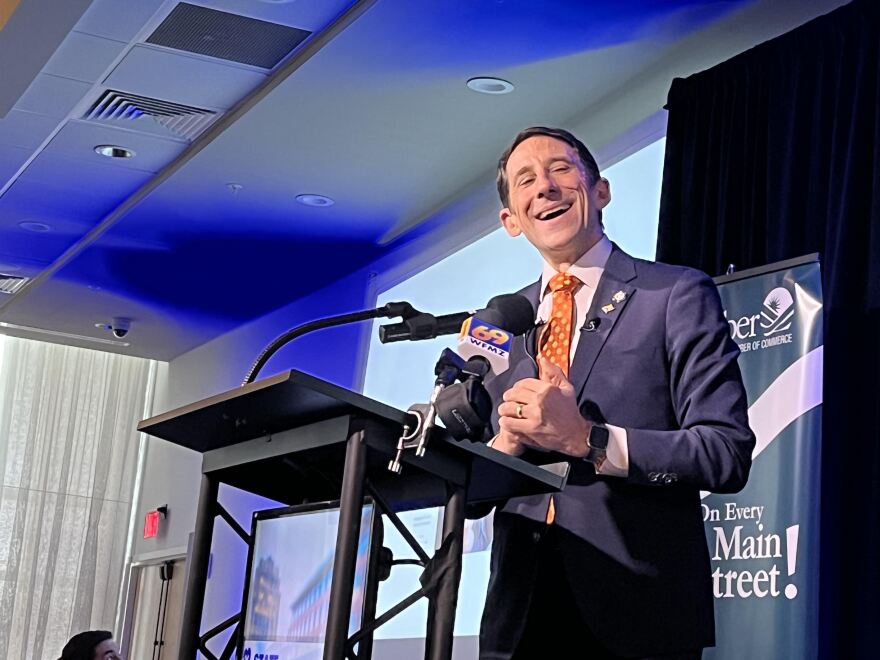
Officials will probably build climate action planning into the 2024 budget, he said.
But there has been movement towards sustainability without a climate action plan in place. Earlier this week, City Council unanimously approved a resolution committing to a “‘fair and equitable’ transition to clean, renewable energy and energy efficiency for municipal operations,” citing a 2018 greenhouse gas inventory that found non-transportation energy use accounts for almost 45% of the city’s carbon footprint.
‘Everybody leaves their ego at the door’
There are many advantages to the three-city approach, Tuerk said, including sharing knowledge and experience.
“We have their work to draw upon, so the work that has been completed by the city of Bethlehem, they will collaborate with us to help us produce these types of plans,” Tuerk said.
“We'll be able to, as we develop our climate action plan here in the city of Allentown, do it in concert with the work that's done at the planning commission to make sure that we are building our planning based on what else is happening in the Lehigh Valley with those other cities.”
The mayors have met a handful of times already to discuss regional issues, Panto said. So far, the collaboration is going well.
“Everybody leaves their ego at the door,” Panto said. “I think when the residents see three mayors talking about climate change, they say, ‘Hey, maybe this is something I should be paying attention to.’”
There aren’t physical barriers separating the cities, Reynolds said, making environmental issues Valley-wide problems that call for Valley-wide solutions.
“I would also say that the biggest value of the climate action plan is the awareness and education about what sustainability is and why it matters,” he said. “It’s not like we can say the people that believe in this go over here, ‘You get to breathe nice air,’ and the people that don't believe it get to go over here and ‘You have to breathe polluted air.’
“That's not the way the environment works.”
While the 3 City Coalition is focused on issues related to housing, homelessness and sustainability, movement has already begun to confront climate change.
“Within the sustainability pillar, we have formed the Lehigh Valley Green Ribbon Commission to build a more sustainable region,” Gross said. “This commission enlists the support and leadership of civic leaders, institutions, non-profits and the business community to collectively address climate change.
“Everything else is secondary beyond that.”Bethlehem Mayor J. William Reynolds
“By coming together to tackle this global issue through a coordinated effort in the Lehigh Valley, we can collaborate, use resources more efficiently and share best practices.”
That commission’s goal is to bring not only city leaders to the effort, but also the business community, said Angela Stein, Bethlehem’s director of mayor's initiatives.
“The Green Ribbon Commission will be made up of a lot of those founding partners that you saw that helped create this plan, the largest organizations and businesses that exist in all three of our cities,” Stein said. “So it will really be pulling them in to have a seat at the table and take some ownership over their own outputs and making sure that they're working together.
“Are there projects that these businesses could partner on? Are there grants that they could get together?”
Engaging with all these stakeholders being partnerships and further movement towards achieving regional goals, Reynolds said.
“It's one thing if a mayor says something, it's one thing if a mayor and city council says something, it's another thing if a mayor, city council, citizens, healthcare institutions, educational institutions, everybody else says the same thing about why sustainability is important,” Reynolds said. “Everything else is secondary beyond that.”

